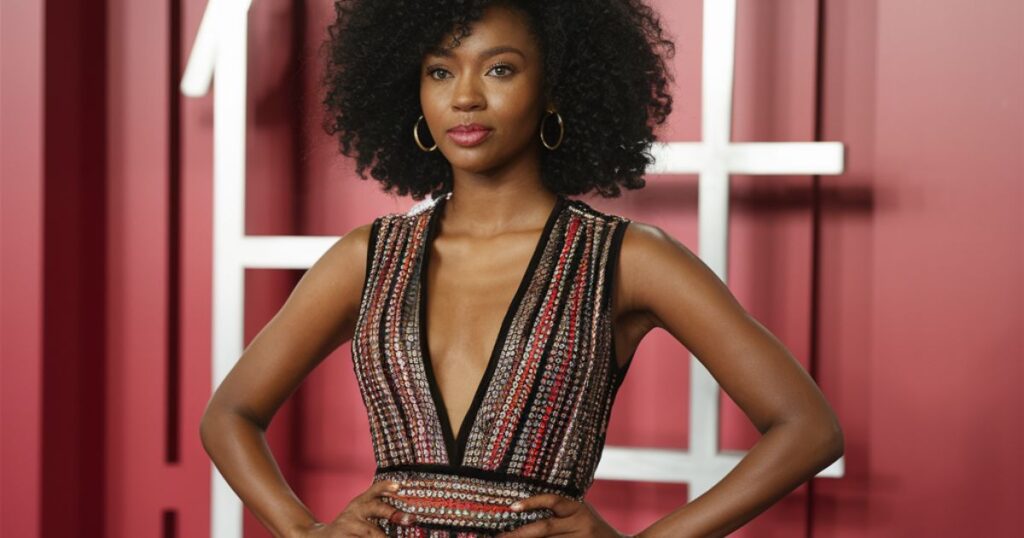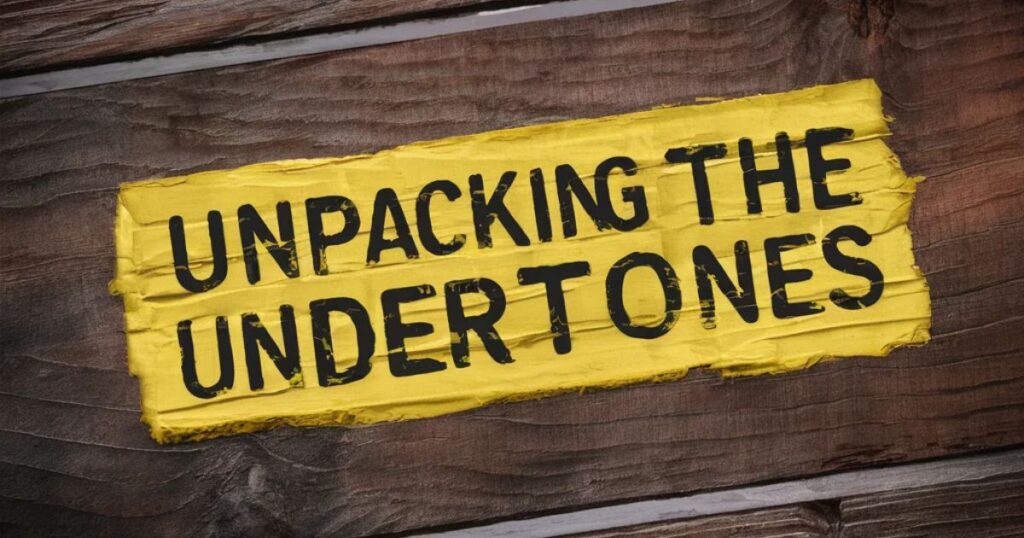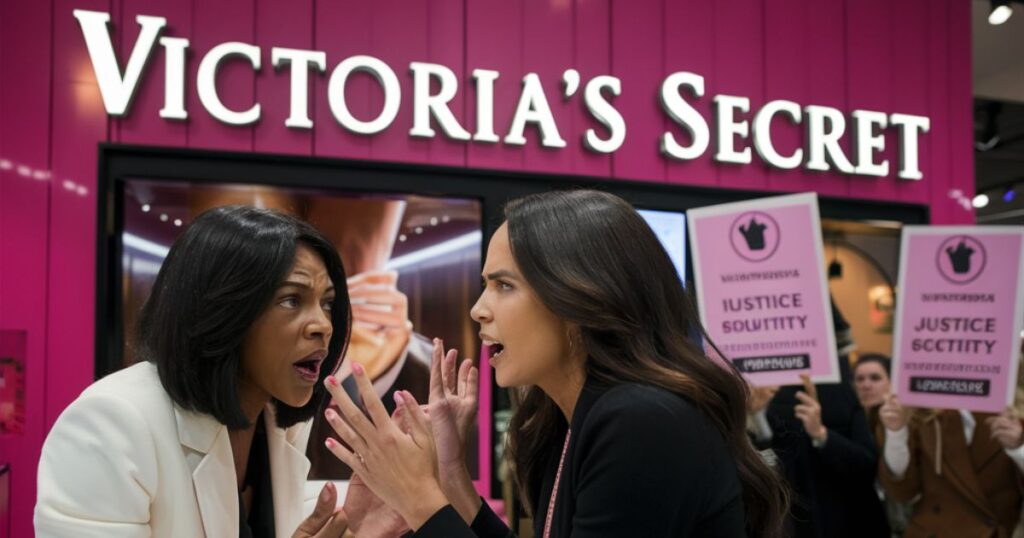The term “Karen” has been trending on social media since 2020, used as a derogatory label for white women in the US. It became a meme following viral videos of white women threatening to call the police or other authorities on black individuals.
Over time, this turned into a controversial topic, leading to the Victoria’s Secret Karen lawsuit.
Abigail Elphick, a 25-year-old white woman from Milburn, NJ, was featured in a viral TikTok video with Ijeoma Ukenta, who dubbed her “Victoria’s Secret Karen.” Elphick had pursued Ukenta, a Black woman, in a popular lingerie store.
Two years later, the incident resurfaced, and Ukenta filed a lawsuit against Elphick. This has sparked curiosity about the details of the Victoria’s Secret Karen lawsuit.
Table of Contents
Unpacking the Viral Video: What Really Happened at Victoria’s Secret?
On a seemingly ordinary day at a Victoria’s Secret lingerie store, an encounter between two customers escalated into a viral racial incident that sparked widespread outrage and a subsequent legal battle.
The crux of the controversy centered around a white woman, Abigail Elphick, and a Black customer, Ijeoma Ukenta, whose interaction was captured on video and shared across social media platforms like TikTok, igniting a firestorm of discussions about race, bias, and the infamous “Karen” phenomenon.
According to the account provided, the incident unfolded when Ukenta used a coupon to obtain a free pair of underwear from the popular brand. Elphick, who was also present at the store, allegedly felt uncomfortable and complained to a cashier after Ukenta requested her to maintain a 6-foot distance.
Tensions escalated as Ukenta began recording the encounter on her phone, capturing Elphick’s emotional outburst and subsequent pursuit. The video footage, which went viral, depicted a distressing scene.
Elphick was seen lunging at Ukenta before collapsing to the floor in tears, pleading for the recording to stop amid what appeared to be a mental breakdown. Elphick’s actions prompted Ukenta to call security, further exacerbating the already tense situation.
As the 15-minute video circulated online, Elphick gained notoriety as the “Victoria’s Secret Karen,” a term that has become synonymous with entitled and racially insensitive behavior, particularly displayed by white women towards people of color.
DEMYSTIFYING IT CONSULTANCY, the video and subsequent discussions have underscored the complexities of race relations and the impact of viral media in contemporary society.
The Legal Battle Ensues: Ijeoma Ukenta’s Lawsuit Against “Victoria’s Secret Karen”

In the aftermath of the viral incident, Ijeoma Ukenta, the content creator at the center of the controversy, filed a lawsuit in July 2023 against Abigail Elphick, Victoria’s Secret, and the store’s security guard.
Ukenta’s legal action alleged dismissive behavior from the security personnel and a lack of concern for her safety during the confrontation.
The lawsuit not only targeted Elphick but also aimed to hold the lingerie giant and its staff accountable for their alleged indifference towards a customer’s well-being in a racially charged situation.
Abigail Elphick’s Defense: Unveiling the Untold Story
As the legal proceedings unfolded, Abigail Elphick’s legal team presented a different perspective on the viral video incident.
According to legal findings reported in September 2023 by reputable sources such as the New York Times, Elphick had a long history of psychological and medical conditions that played a significant role in her behavior.
Elphick’s team argued that her actions were not race-based but rather a manifestation of her mental health struggles, which triggered a breakdown during the argument with Ukenta.
They further revealed that Elphick lived in a residence for individuals with developmental and intellectual disabilities, fearing the potential loss of her job and apartment as a result of the viral video’s impact.
The court records also disclosed disturbing details about the harassment Elphick endured in the aftermath of the incident.
She received a chilling call from a stranger who threatened to rape and kill her, prompting Tom Toronto, the president of Bergen County’s United Way, the organization responsible for her residence, to speak out in her defense.
Toronto repeatedly emphasized Elphick’s psychological disorder, shedding light on the complexities surrounding her actions.
The Monetization Debate: Ijeoma Ukenta’s Profiting from the Viral Video
While Elphick’s legal team worked to contextualize her actions, Ijeoma Ukenta faced criticism for her decision to monetize the viral video. In July 2021, Ukenta posted the footage on her YouTube channel with the caption “Karen Goes Crazy,” garnering an impressive 2.6 million views and subsequently increasing her subscriber base.
Capitalizing on the video’s success, Ukenta launched a GoFundMe campaign titled “Help Me Defend Myself Against Karen,” which raised a reported $104,000. This decision sparked a heated debate, with some accusing Ukenta of exploiting the incident for personal gain and fame.
However, Ukenta and her attorney, Tracey Hinson, defended her actions, asserting her right to profit from her experiences, just as others might profit from their content.
Hinson stated on the social media platform X (formerly Twitter) in 2021, “She was within her rights to make money off my videos if anyone else was.”
The entrepreneur’s attorney further argued that Ukenta’s decision to discuss the situation stemmed from a need to be believed in the Milburn, New Jersey community, where she felt her account might not be taken at face value.
Unpacking the Racial Undertones: A Broader Societal Discussion

Beyond the legal battles and personal narratives, the Victoria’s Secret Karen incident reignited discussions about race relations, bias, and the impact of social media on amplifying such incidents.
The “Karen” phenomenon, which gained traction in 2020, has become a potent para “”symbol of entitled and often racially insensitive behavior displayed by white women towards people of color.
The viral video, which depicted a white woman’s aggressive actions towards a Black customer, highlighted the persistent racial tensions that continue to permeate various facets of society.
While the incident itself was undoubtedly complex, with mental health issues and personal circumstances playing a role, it also served as a catalyst for broader conversations about racial bias, empathy, and the need for open dialogue.
As the details of the case unfolded, it became clear that the incident resonated deeply with many individuals who have experienced or witnessed similar encounters shaped by racial undertones.
The widespread sharing of the video on social media platforms amplified its impact, sparking discussions and debates about the societal implications of such incidents.
Key Takeaways
- The Victoria’s Secret Karen incident, captured on video, sparked nationwide outrage and a legal battle due to its racial undertones.
- Ijeoma Ukenta, the Black customer, filed a lawsuit against Abigail Elphick, Victoria’s Secret, and the store’s security guard, alleging dismissive behavior and safety concerns.
- Elphick’s legal team argued that her actions were not race-based but rather a result of her mental health condition and psychological disorders.
- The incident reignited discussions about the “Karen” phenomenon, racial bias, and the impact of social media on amplifying such incidents.
- The controversy highlighted the need for open dialogue, empathy, and understanding in navigating complex racial issues within society.
As the legal proceedings continue and the public discourse evolves, the Victoria’s Secret Karen incident serves as a poignant reminder of the ongoing challenges and complexities surrounding race relations in contemporary society.
It underscores the importance of fostering empathy, open communication, and a commitment to addressing deeply rooted biases, while also acknowledging the nuances and individual circumstances that shape such incidents.
